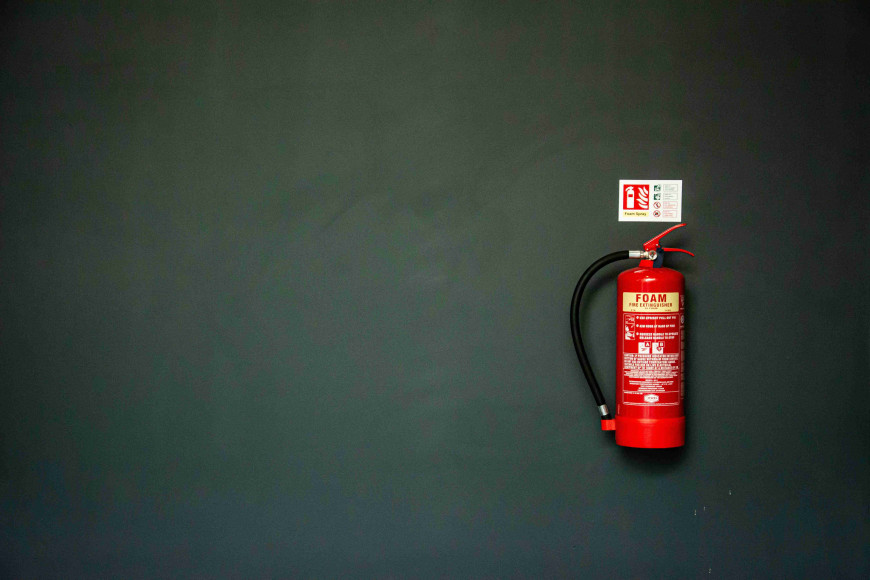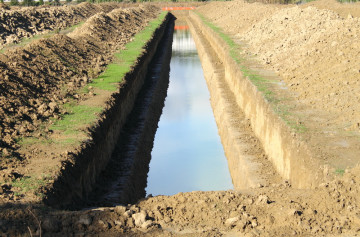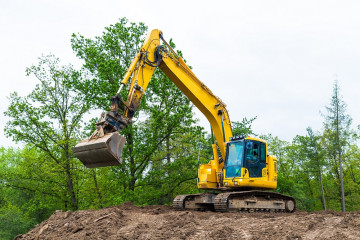A significant legal update in UK fire safety regulations is rapidly approaching. Foam fire extinguishers containing the harmful chemical PFOA must be removed from service by 4 July 2025.
This change requires immediate attention from UK businesses to ensure compliance, protect employee health, and avoid legal repercussions.
Our Fire Safety Subject Matter Expert (SME), Richard Leppard of Antea Group UK, has compiled a summary of the changes, the rationale behind the ban, and the essential steps your organisation must take to achieve compliance.
The Core Change: Why AFFF Foam Extinguishers are Being Phased Out
The regulatory spotlight is on AFFF (Aqueous Film-Forming Foam) fire extinguishers, once considered the “gold standard” for suppressing Class A (flammable solids) and Class B (flammable liquids, such as petrol or oil) fires.
The issue lies with the inclusion of Perfluorooctanoic Acid (PFOA) and other Polyfluoroalkyl Substances (PFAS)—collectively known as “forever chemicals.”
The Health and Environmental Risk
These chemicals are highly persistent; they do not break down easily, accumulating in the environment, water sources, and human or animal bodies. Concerns over PFOA and PFAS have escalated due to their link to severe health issues, including liver and kidney disease, reduced fertility, and certain cancers.
In response to these growing concerns, and following guidance from the European Chemicals Agency (ECHA), UK environmental agencies have enacted stricter regulations, leading to a phased ban on these PFAS-containing products.
Actionable Steps: How to Check Your Foam Extinguishers
The most critical step is determining whether your existing foam extinguishers contain PFOA. While many units manufactured since 2016 are likely to be PFOA-free, you cannot assume compliance. You need evidence before the 4 July 2025 deadline.
Here is a clear, three-step action plan to verify your equipment:
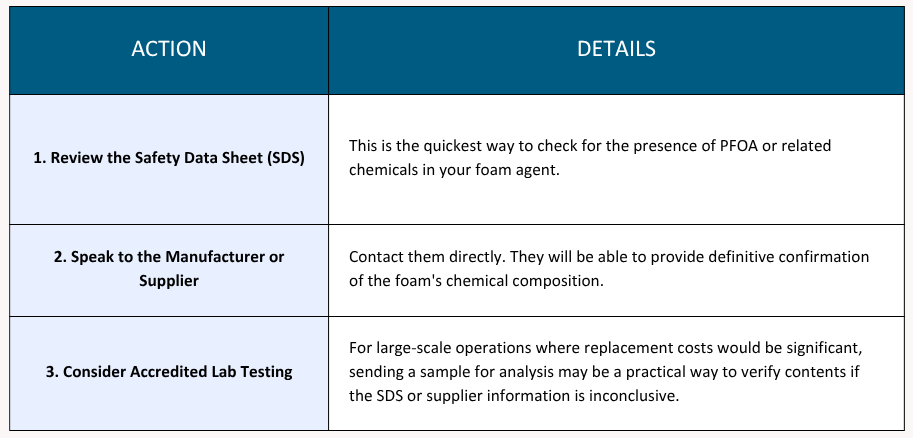
Crucial Note: If you cannot definitively prove that your extinguishers meet the new standards, or if they are very old with no verifiable service or refill record, you must assume they are non-compliant and take them out of service.
Non-Compliant Extinguishers: Disposal and Replacement
If your extinguishers are confirmed or assumed to contain PFOA, the next steps are immediate removal and proper disposal.
Disposal as Hazardous Waste
PFOA-containing extinguishers cannot be disposed of through general waste channels. They must be treated as hazardous waste to prevent environmental contamination.
- Requirement: Disposal must be carried out by a licensed hazardous waste disposal service.
- Process: The waste service will incinerate the units at incredibly high temperatures to safely destroy the PFOA chemicals.
Choosing the Right PFOA-Free Replacement
Removing a non-compliant extinguisher leaves a fire safety gap. When selecting a replacement, you must consider the specific types of fire (e.g., Class A, B, or F) and the environment where the extinguisher will be used.
The British Approvals for Fire Equipment (BAFE) advises that a suitable replacement must match the required fire class identified in your risk assessment and be compliant with the relevant parts of BS 5306.
Safe Alternatives to AFFF Foam
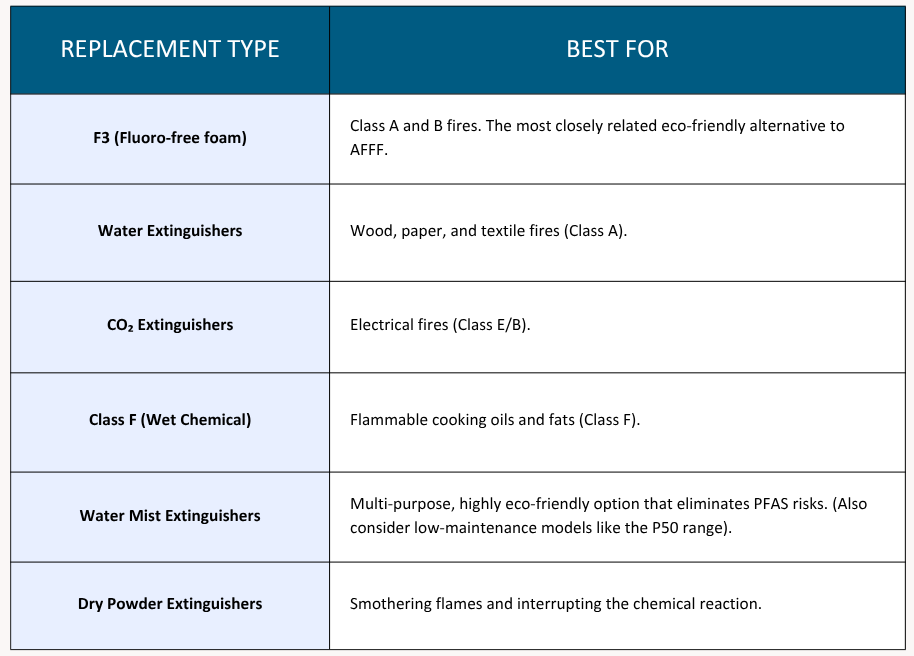
The Risk of Non-Compliance
As this is a legal requirement under UK environmental and fire safety legislation, failing to comply with the PFOA ban carries significant risks for your business:
- Legal Action: Potential prosecution or enforcement by UK authorities.
- Financial Penalties: Fines for improper storage, use, or non-compliant disposal of banned substances.
The 4 July 2025 deadline is firm and part of a broader, long-term move to protect public health and the wider environment. Organisations must act now to ensure all fire safety provisions are compliant and future-proofed against unconfirmed dates regarding additional PFAS chemical bans.
Need Expert Guidance on Fire Safety Compliance?
Antea Group UK, led by experts like Richard Leppard, can assist your business with a comprehensive review of your current fire safety provision, non-compliant equipment disposal, and strategic planning for PFOA-free replacements that meet all UK regulations, including BS 5306.
Contact the Antea Group UK team today to ensure your fire safety is both legally compliant and environmentally responsible.
Do you have any questions?
Contact us to discuss your environment, health, safety, and sustainability needs today.

